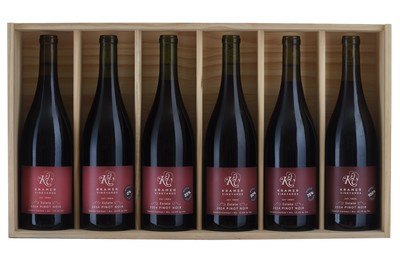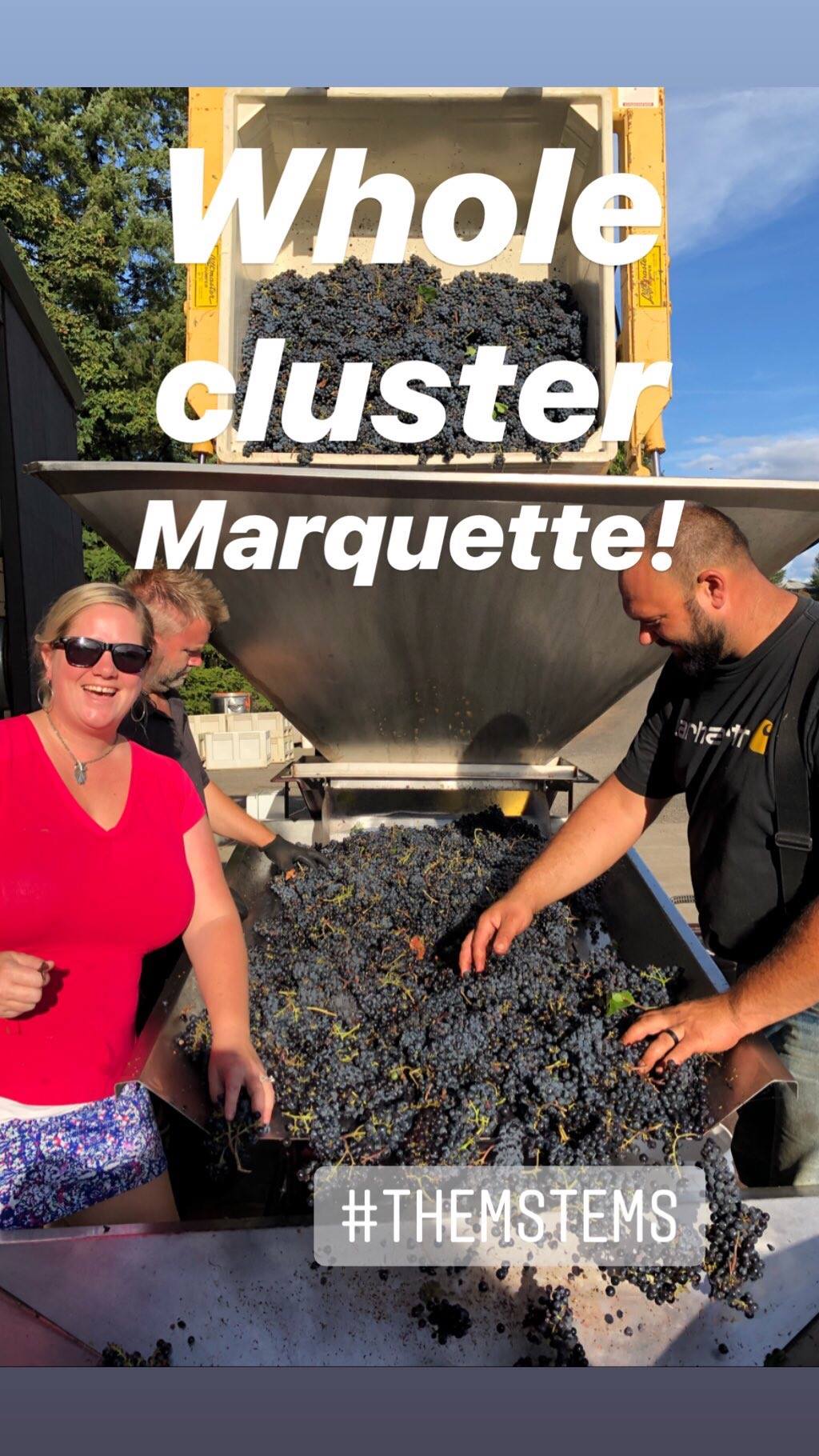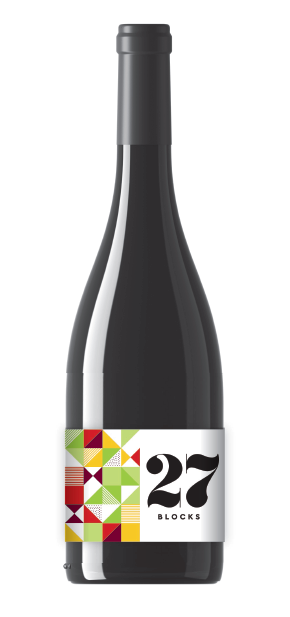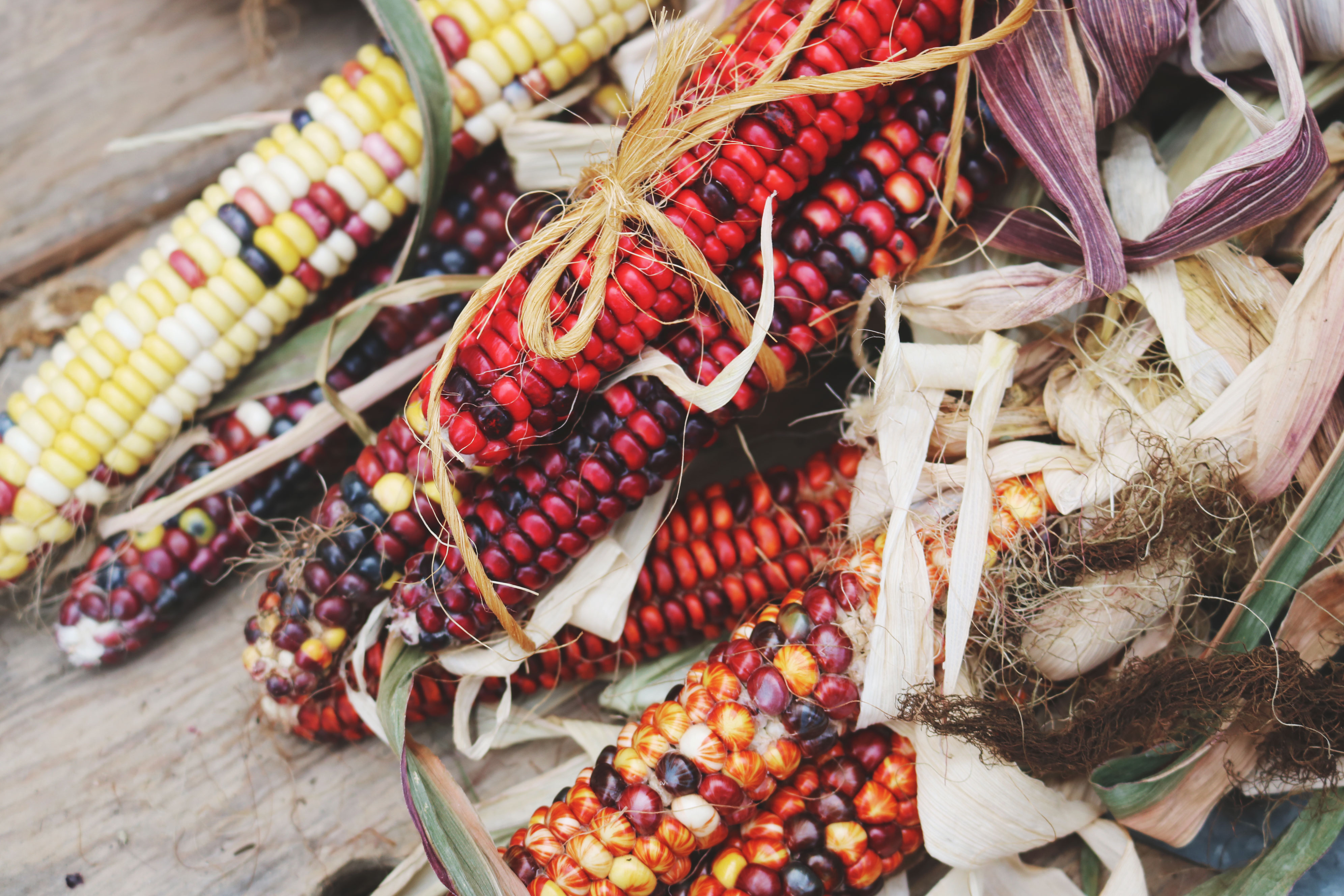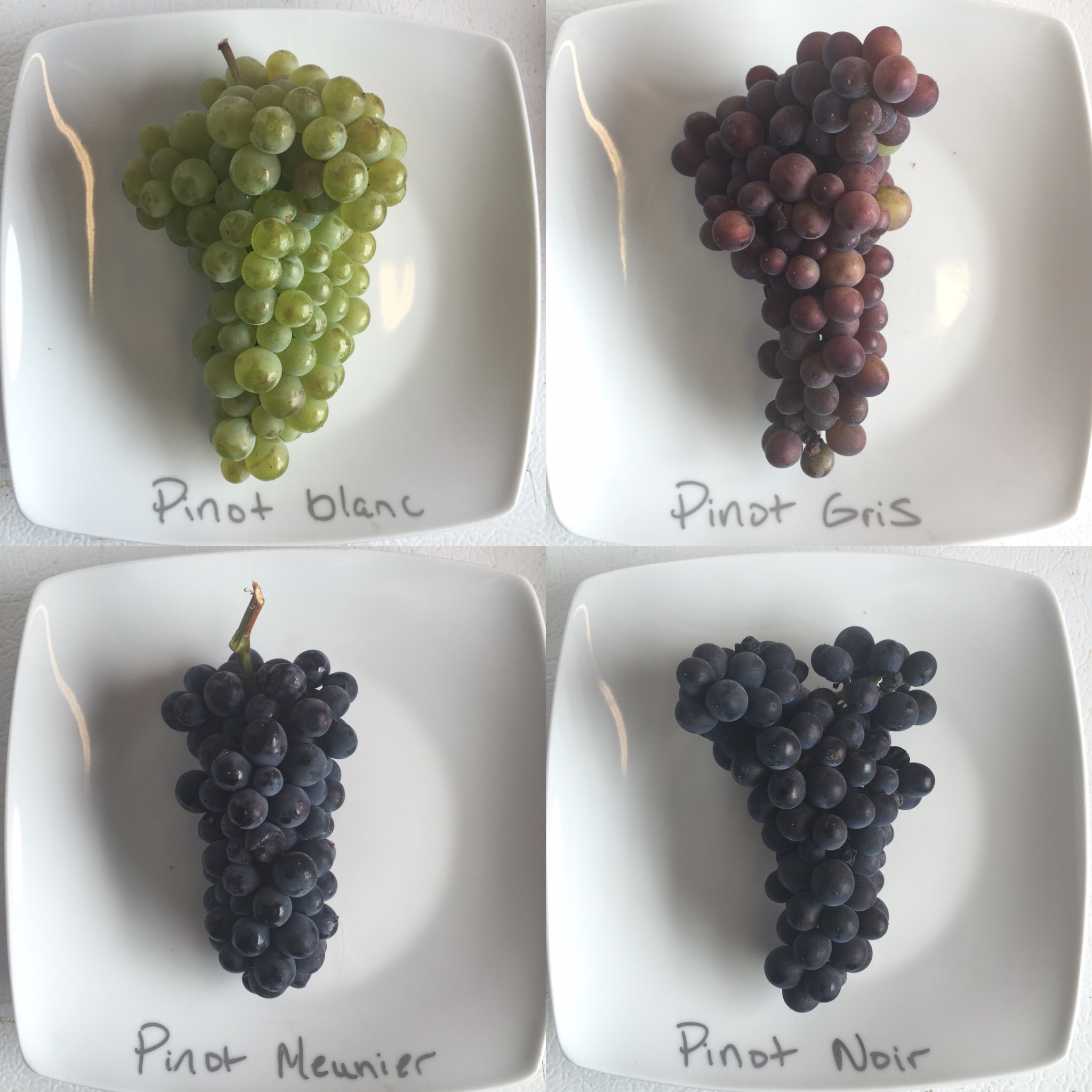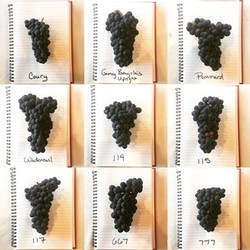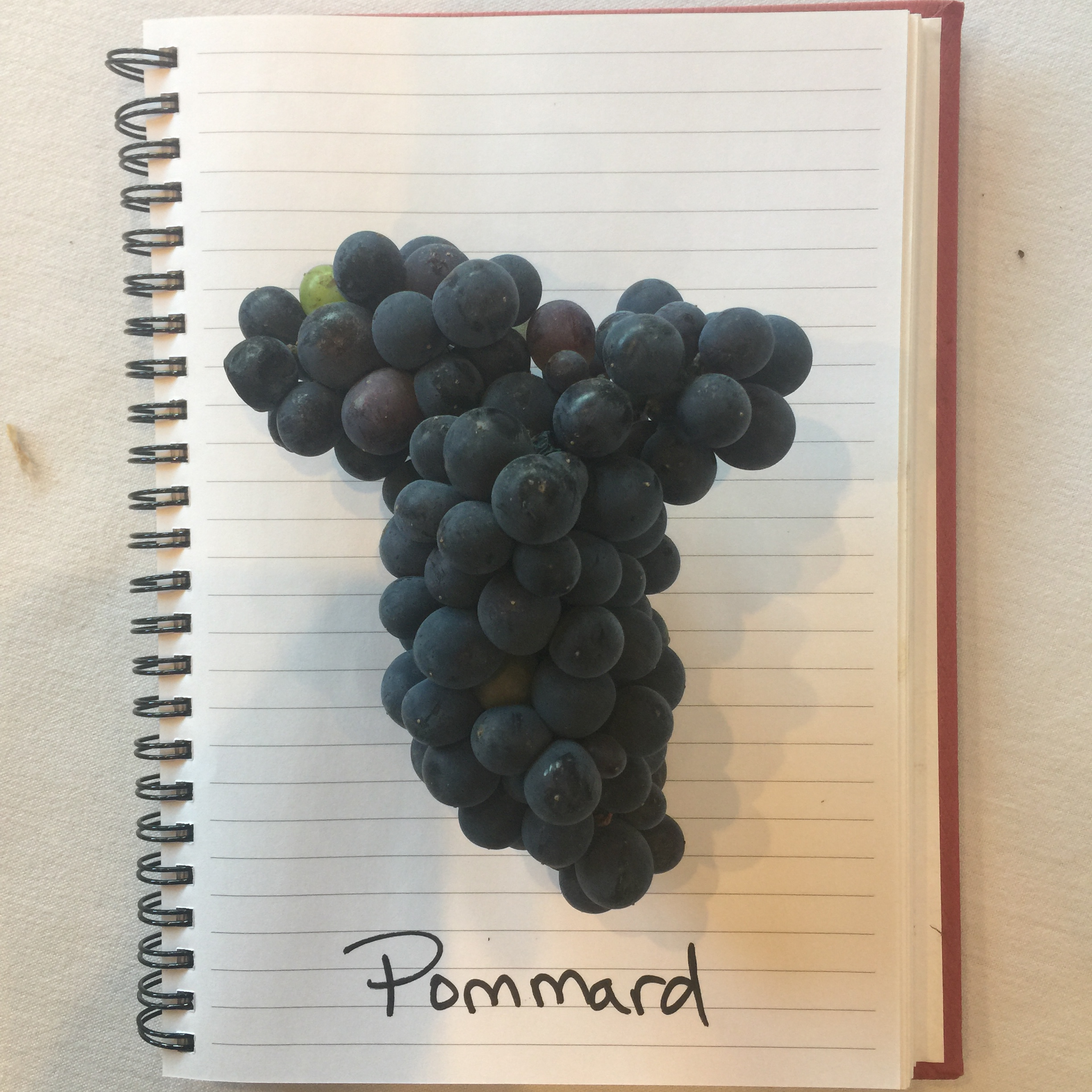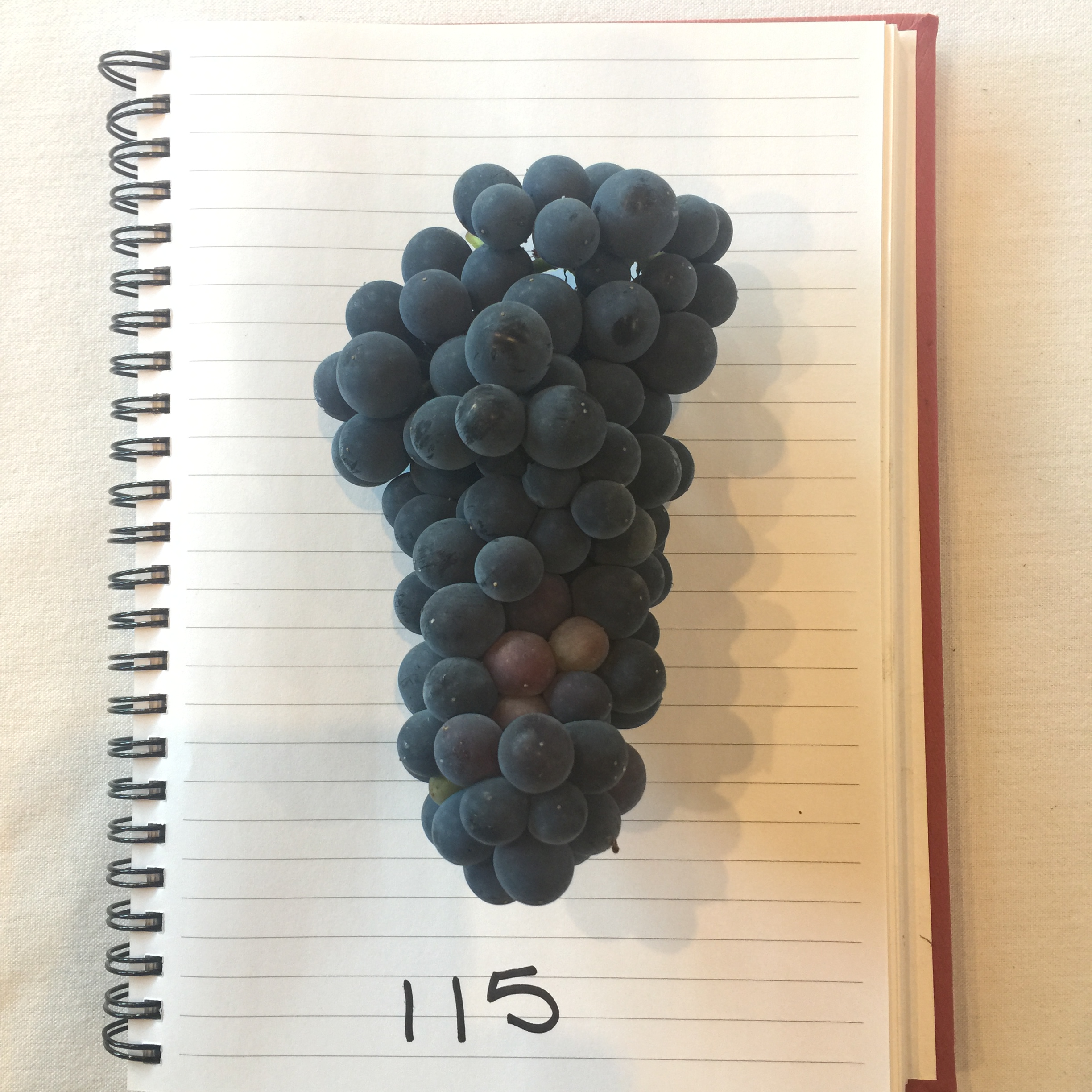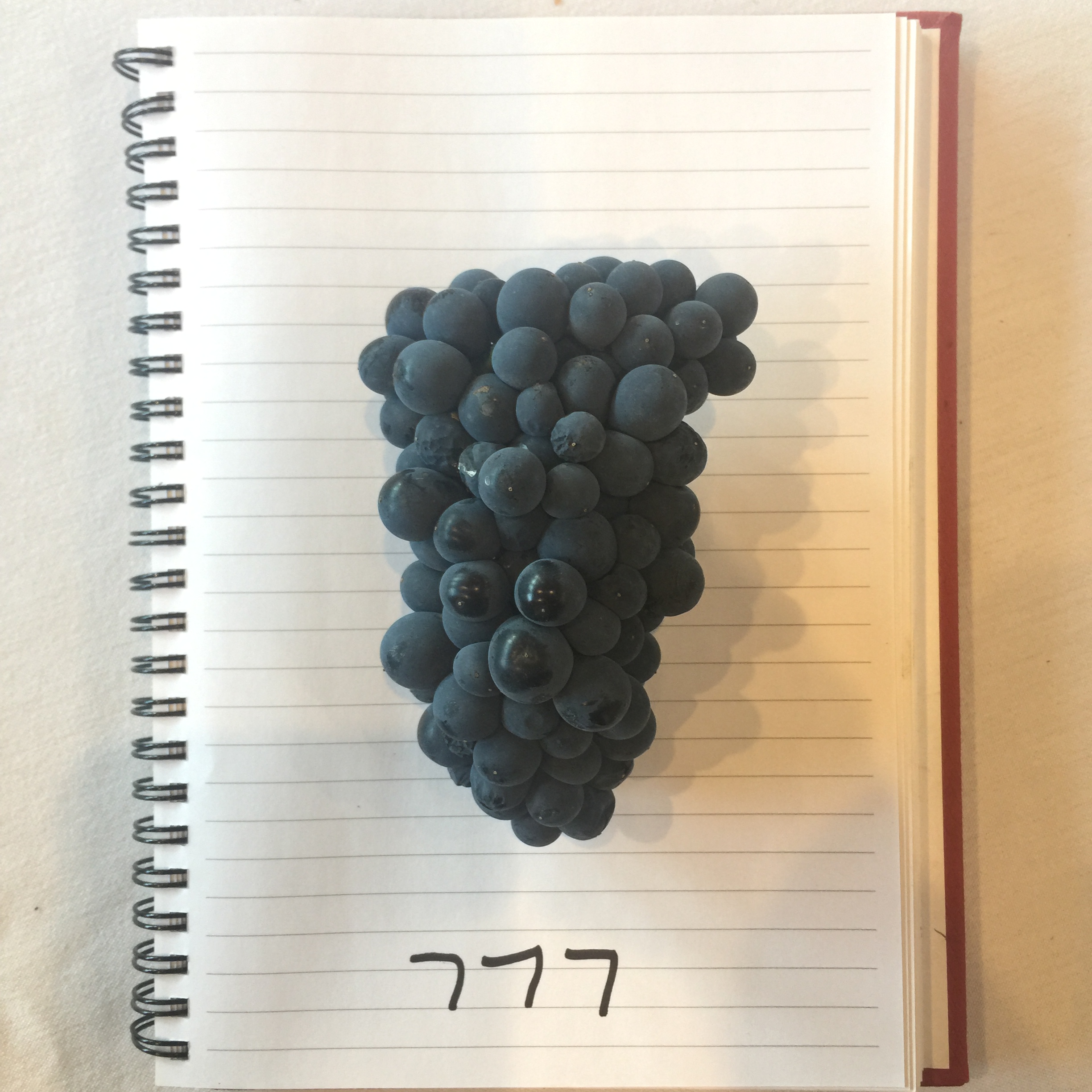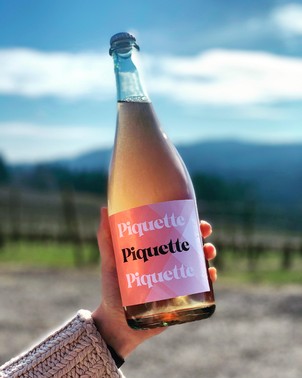🍇 Kramer Vineyards Blog: Discover Wine Tips, Stories, and More 🍷
Welcome to the Kramer Vineyards blog, your go-to resource for all things wine! From expert pairing tips and behind-the-scenes vineyard stories to seasonal inspiration, discover the artistry, history, and passion behind every bottle. Explore our latest articles and uncover new ways to enjoy exceptional wines.
Never Miss a Story!
Subscribe to the Kramer Vineyards newsletter for the latest wine tips, pairings, and stories.
A Journey through 27 Blocks: Unveiling the Essence of a Singular Vintage
Unveiling the Tapestry of 27 Blocks:
A Symphony of Flavors:
The Story of Vintage:
A Wine for the Curious Palate:
As we conclude our journey through the exquisite 27 Blocks, we invite you to immerse yourself in the world of this singular vintage. From the artful co-fermentation to the harmonious blend of nine distinct grape varieties, every bottle tells a story meant to be savored and shared. Experience the essence of our estate vineyard in each glass, and let the flavors transport you to the sun-soaked hills and cool valleys where the grapes ripened. Discover the magic of 27 Blocks and allow its captivating charm to leave an indelible mark on your wine-loving heart.
The label is a patchwork quilt, representing the blocks of grapevines in our vineyard.
The Other 4%: Exploring Unique Oregon Wine Varietals at Kramer Vineyards
Did you know that 96% of the vineyard acreage in the Willamette Valley is dedicated to Pinot Noir, Pinot Gris, and Chardonnay? While these noble varieties have captured the spotlight, an exciting world of alternative Oregon wine varietals is waiting to be explored. At Kramer Vineyards, we invite you to venture beyond the familiar and discover "The Other 4%."
The Alternative Varietals at Kramer Vineyards
While Pinot Noir, Pinot Gris, and Chardonnay may be the stars of the Willamette Valley, we have been passionate about cultivating lesser-known varietals that thrive in our unique terroir. Let's dive into the intriguing characteristics of Grüner Veltliner, Müller-Thurgau, Pinot Meunier, Carmine, and Marquette.
Müller-Thurgau: A Hidden Gem
Müller-Thurgau, a relatively unknown varietal, has found a thriving home in our vineyards since the mid-1980s. Its story at Kramer Vineyards began when owner Keith Kramer took a vineyard management class in the early 1980s. During the class, he encountered a fellow enthusiast who couldn't contain their excitement about Müller-Thurgau for Oregon. Intrigued by the fervor, Keith decided to explore this grape further.
"We bought some when we had the opportunity in the mid-80s," Keith recalls. The wine made from Müller-Thurgau grapes was a hit, prompting us to plant vines at our estate. This varietal proved exceptionally productive at our site, consistently yielding flavorful fruit even in the most challenging vintages.
Since then, we've crafted various Müller-Thurgau wines, from dry to off-dry, semi-sweet to dessert, and even sparkling. Our sparkling and still wines have garnered popularity and often rank as the top sellers in our tasting room. In 2018, Wine Enthusiast recognized us as a Notable Müller-Thurgau Producer in the US, further validating our dedication to this exceptional varietal.
Indulge in the enticing flavors of peach, starfruit, lychee, passionfruit, mango, lime, gooseberry, and sweet basil that define our Müller-Thurgau wines. Experience the charm of this hidden gem and join us in celebrating the recognition and acclaim our Müller-Thurgau wines have garnered.
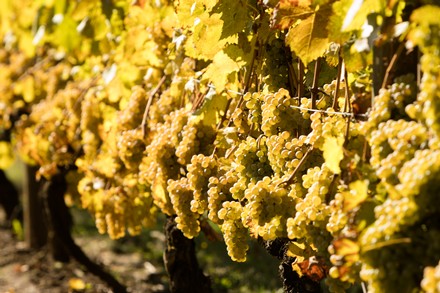
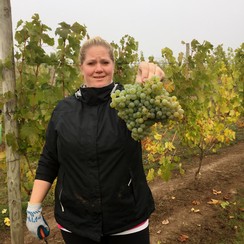
Grüner Veltliner: A Crisp and Versatile White
Grown on our estate since 2010, Grüner Veltliner is a remarkable white grape variety known for its crispness and expressive flavors. This Austrian favorite captivates with notes of lemon, lime, cucumber, peach, white flowers, freshly cut grass, green apple, and pear. Its high acidity and versatility make it an excellent choice for food pairing, complementing a range of dishes.
At Kramer Vineyards, we've taken the allure of Grüner Veltliner a step further by crafting a spectacular sparkling wine. The lively effervescence and elegant flavors of our Grüner Veltliner sparkling wine delight the senses. With each sip, you'll experience the vibrancy of citrus, the complexity of orchard fruits, and the refreshing zing that only sparkling wines can deliver.
Whether you savor our still Grüner Veltliner or indulge in the sparkling variation, this exceptional varietal will captivate your palate and elevate your wine experience. Join us in celebrating the versatility and sparkling brilliance of Grüner Veltliner at Kramer Vineyards.
Pinot Meunier: A Sparkling Delight
Pinot Meunier is an exceptional grape variety in our vineyards, exclusively planted, grown, and harvested for our traditional sparkling wine program. This distinctive grape adds depth and character to our sparkling wines, contributing to their unique and effervescent charm. Indulge in the enchanting flavors of cherries, blackcurrants, blackberries, tobacco, leather, and subtle spice that define our Pinot Meunier sparkling wines. With every sip, experience the artistry and dedication that goes into crafting these sparkling delights at Kramer Vineyards.
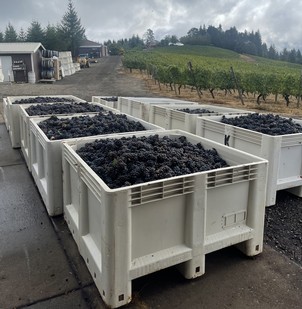
Carmine: A Heritage from California
Carmine has a fascinating history that traces back to its creation in 1946 at UC Davis by Dr. Harold Olmo. This unique grape variety is a cross of Cabernet Sauvignon, Carignan, and Merlot, developed specifically to thrive in California's cooler, coastal regions. Although Olmo's vision for Carmine did not gain widespread popularity as intended, the vines found their way north to Oregon in the 1970s, landing at Courting Hill Vineyard in Banks. It was there that Keith Kramer, inspired by the Oregon wine legend Jim Leyden, was introduced to this intriguing grape variety. In 1989, Leyden generously gifted Kramer Vineyards with our first Carmine vines.
At Kramer Vineyards, we have dedicated ourselves to unlocking the potential of Carmine. This late-ripening, thick-skinned grape has revealed its true character through our continuous exploration in the vineyard and the winery. Our Carmine wines, known for their dark red color, exude herbaceous aromas and peppery notes. With influences from its Cabernet Sauvignon grandparent, you can expect dark fruit flavors, dark chocolate, and an occasional hint of mint. Indulge in the distinctive flavor profile of our Carmine wines, featuring dried cranberries, maraschino cherries, cinnamon, anise, bell pepper, and cracked peppercorns.
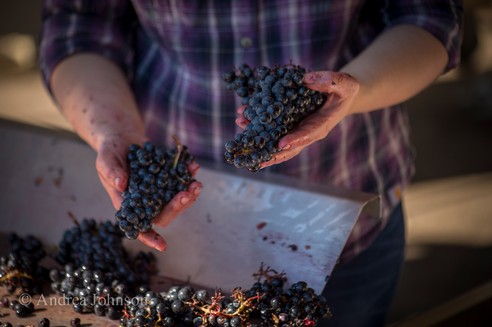
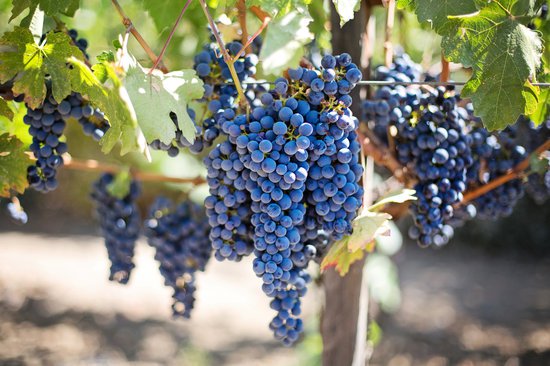
Marquette: A Challenging Yet Essential Grape
Marquette, a captivating grape variety, was planted in our vineyard in 2010 across 0.5 acres. Developed by the University of Minnesota for extremely cold climates, Marquette is not well suited to our region or our property. Its intended growing conditions are much cooler than what we have in the Willamette Valley, resulting in unique challenges for its cultivation.
One of the major obstacles we face with Marquette is its early ripening nature. The vines tend to bloom weeks ahead of other varietals, often coinciding with rain, interfering with fruit set. This presents a constant battle to ensure proper fruit development during critical growth periods.
Another challenge arises at harvest time. Due to its early ripening, Marquette is susceptible to bird predation. The birds sometimes devour the fruit before we can pick it. Additionally, the chemistry of Marquette at ripeness is unusual, often exhibiting high sugar levels and acidity, requiring careful monitoring and timing for optimal harvest.
While we wouldn't recommend planting Marquette in the Willamette Valley, we have found a wonderful use for this challenging grape. By cofermenting it with grapes sourced from throughout our estate vineyard, we create the delightful summery red wine called 27 Blocks. This cofermentation allows Marquette to shine as a base, contributing its unique character to the blend.
With its flavor profile encompassing cherries, blackcurrants, blackberries, tobacco, and leather, 27 Blocks is a captivating expression of the harmonious interplay between our vineyard's nine grape varieties. Despite the challenges of growing Marquette in our region, its contribution to creating 27 Blocks makes it an essential part of our winemaking journey.
As you explore the wonders of Oregon wine, don't limit yourself to the familiar. At Kramer Vineyards, we invite you to journey into "The Other 4%" and discover the exceptional varietals that make our region unique. From the crispness of Grüner Veltliner to the hidden gem of Müller-Thurgau, the unique expressions of Pinot Meunier, and the innovative spirit of Carmine and Marquette, each varietal tells a story that deserves to be savored. Join us in exploring flavors and expanding your wine horizons with Kramer Vineyards.
A Beginner's Guide to Pinot Noir Clones: Q&A with Kramer Vineyards
These vines have the same DNA
What is a clone?
Pinot Noir clones are genetically identical vines propagated asexually from a "mother vine." In other words, they are vine cuttings taken from a single, original vine and grown to produce new vines. These new vines are identical to the mother vine and to one another, which allows winemakers to plant vineyards with consistent grape quality and characteristics. Pinot Noir clones can vary in their susceptibility to disease, tolerance of climatic conditions, and flavor profiles. Understanding the different features of each clone is crucial for me, as I am always looking to produce wines of the highest quality that reflect the unique terroir of our vineyard.
How do new clones of Pinot Noir arise?
Pinot Noir clones can arise through spontaneous mutations in the grapevine's DNA. These mutations create genetic variations that can change the vine's physical characteristics, such as the size or shape of its leaves or clusters of grapes. Winemakers often select and propagate clones that exhibit desirable traits, such as resistance to disease, tolerance of climatic conditions, or unique flavor profiles.
Pinot Noir has been cultivated for thousands of years, which has allowed numerous mutations to occur and be identified. While most clones originate from France, unique clones have also been identified in Switzerland, California, Oregon, and other regions. The mapping of the Pinot Noir genome in 2007 has further expanded our understanding of the genetic makeup of this grape variety and the potential for discovering new clones in the future.
Pinot Noir clones are continually evolving, and new clones may arise from spontaneous mutations. There is a possibility that the Kramer Vineyards may have a unique clone of Pinot Noir that has yet to be identified. This potential for discovery is part of what makes working with Pinot Noir clones so exciting for us.
Jumping genes are present in almost all living cells. 50% of the human genome are jumping genes; up to 90% of the maize genome are jumping genes!
Is it difficult to detect differences between clones of Pinot Noir in wine tasting?
You don't have to be a wine expert to appreciate the impact of clones on the flavor and aroma of Pinot Noir. Pinot Gris and Pinot Blanc are also clones of Pinot Noir, created through mutations that affect the skin color of the grape. These mutations are so distinctive that they're often considered distinct grape varieties. We'll dive deeper into these varietals in another post. But for now, consider this: if you can tell the difference between white and red wine, your palate is expert enough to explore the nuances of Pinot Noir clones. By understanding the various clones, you can better appreciate the unique qualities of different Pinot Noir wines. For more on this topic, see Pinot Blanc and Pinot Noir Blanc: What's the Difference?
Why is it useful to know about Pinot Noir clones?
The answer for winegrowers and winemakers is simple: it allows us to choose the best clones for our specific growing conditions and wine style. For wine drinkers, knowing about clones can enhance your appreciation and understanding of the wine you're enjoying. At Kramer Vineyards, we grow nine clones of Pinot Noir and make single-clone wines from several different clones of Pinot Noir. Let's take a closer look at the characteristics of the main clones in our vineyard.
Pommard
The Pommard clone, originating from Pommard, a village in the Burgundy region of France, has made a new home in the Yamhill-Carlton AVA, where our Kramer Estate vineyard is located. It has been an essential part of Willamette Valley Pinot Noir's history and reputation, as it was one of the first clones available in the US. It is planted in many of the region's oldest vineyards, including at Kramer Estate. This clone produces medium-sized clusters, often with shoulders, and is well-suited to the cool, moist climate of the Willamette Valley.
At Kramer Vineyards, the Pommard clone was the first clone of Pinot Noir planted in 1984 and remains a significant component in many of our Pinot Noir wines, including our Estate, Cardiac Hill, Rebecca's Reserve, and Heritage Pinot Noir wines. The grapes of the Pommard clone produce balanced and elegant wines suitable for aging, which is why it is still an essential part of our vineyard. When people think of what Oregon Pinot Noir tastes like, the Pommard clone is often a big part of that reputation.
Dijon 115: The Finesse and Balance of Pinot Noir
Discover the allure of Dijon 115, a prized Pinot Noir clone hailing from Burgundy's University in Dijon. Recognized as part of the esteemed Dijon clones, Dijon 115 offers a captivating combination of early ripening, small berries bursting with intense flavors. Renowned for its finesse and balance, wines crafted from Dijon 115 grapes leave a lasting impression. At Kramer Vineyards, we were among the early adopters of this clone, planting it alongside Pommard in our esteemed Rebecca's Reserve block back in 1992. Today, Dijon 115 remains an integral component in our esteemed Cardiac Hill and Estate Pinot Noirs, showcasing its remarkable attributes year after year. Unlike other clones known for specific characteristics like spiciness or tannin, Dijon 115 stands apart as a complete wine, offering unparalleled balance and elegance. Our decision to embrace this clone was influenced by a renowned winemaker from Burgundy who attested to its surging popularity. Experience the magic of Dijon 115 and savor the harmonious symphony it brings to each glass.
Dijon 777: Embracing Richness and Spiciness
Originating from the prestigious University in Dijon, Burgundy, Dijon 777 is an early ripening clone that gives rise to small clusters and berries, culminating in wines of intense color and pronounced tannins. Notably characterized by a captivating spiciness, Dijon 777 has become a sought-after choice for blending. Our journey with this numbered clone began in 2001 when we first planted it at Kramer Estate, integrating it harmoniously into our distinguished Estate Pinot Noir. Owner and winegrower Keith Kramer holds a special affinity for the fiery allure of Dijon 777. In 2019, inspired by a neighboring block consistently producing exceptional fruit quality, he made the bold decision to graft 0.6 acres of Muller-Thurgau to Dijon 777, tripling its acreage. The result? A tribute to the clone's undeniable character and the promise of extraordinary wines to come. Join us on this spicy exploration and experience the distinct charm of Dijon 777 in every sip.
In conclusion, while clonal selection is essential in producing exceptional Pinot Noir, it is just one piece of the puzzle. The terroir and microclimate of a vineyard site can significantly impact how a particular clone expresses itself in the resulting wine. At Kramer Vineyards, we have seen this firsthand in our 22-acre vineyard. If you're interested in exploring the unique characteristics of each clone, we invite you to visit the single clone Pinot Noir section of our online store. Here you can experience each clone's distinct personality and flavors and gain a deeper appreciation for the complex interplay of factors that create truly exceptional wines.
Meet Piquette: Wine Just Got Cooler
Discover the Delights of Piquette: A Refreshing, Sustainable Alternative
Piquette is a unique and refreshing drink that offers a delightful alternative to traditional wines. Crafted from pressed grape skins, Piquette is a lower-alcohol, lightly sparkling beverage with a vibrant flavor profile. At Kramer Vineyards, we have embraced this age-old winemaking technique to create a fizzy and refreshing drink that showcases our commitment to sustainability and innovation.
Crafting Piquette: The Art of Repurposing Grape Skins
To create our Piquette, we repurpose the grape skins that remain after the juice extraction process. These grape skins are rehydrated, allowing the release of sugars and flavors. After steeping for four days, the mixture undergoes gentle pressing, resulting in a beautiful rosy hue. The must is then fermented in stainless steel tanks, creating the delightful effervescence that characterizes Piquette.
"I saw a creative challenge in capturing so many trends with Piquette. It is the intersection of rosé, sparkling, low sugar, lower alcohol, single-serving packaging—and it's adjacent to the cider, craft beer, and hard seltzer categories." said second-generation winemaker Kim Kramer.
Tasting Notes: A Symphony of Flavors
Our Piquette delights the palate with a harmonious blend of flavors. Experience the compelling notes of pomegranate, cran-raspberry, rhubarb, and tart apple, complemented by subtle hints of earth and spice. Each sip of Piquette is a refreshing and vibrant journey, offering a unique taste experience unlike traditional wines.
Enjoying Piquette: Versatile and Refreshing
Piquette is a versatile beverage that can be enjoyed in various ways. Serve it chilled for a refreshing pick-me-up, or mix it into your favorite spritzer or sangria recipes for a flavor twist. It pairs wonderfully with light, summery foods like seafood, salads, grilled vegetables, or light appetizers. With its lower alcohol content, Piquette is perfect for daytime events or as a lighter alternative to wine.
Join the Piquette Revival: Embrace Sustainability and Refreshment
Be part of the Piquette revival and experience the joy of this unique and sustainable beverage. Whether planning a picnic, a leisurely day outdoors, or a social gathering, Piquette is the perfect companion. Celebrate the essence of vineyard life with this refreshing and easy-to-drink option that captures the spirit of innovation and sustainability.
Experience Piquette at Kramer Vineyards
Kramer Vineyards invites you to explore the delights of Piquette. Join us in embracing this ancient winemaking practice, reimagined for modern tastes. Visit our vineyard and savor the vibrant flavors of Piquette. This refreshing beverage embodies our commitment to sustainability and craftsmanship.
Explore our sparkling collection, including Piquette --->>>
Note: To learn more about the emerging trend of lower-alcohol Piquette in Oregon, we recommend reading "Is lower-alcohol Piquette Oregon's next big wine craze?".
Kramer Vineyards: Crafting Unique and Refreshing Beverages Since 1990
Kramer Vineyards is a family-owned and operated winery in its second generation. For nearly 40 years, they have been growing grapes at their sustainably farmed vineyard in the Yamhill-Carlton AVA. Kramer specializes in producing cool climate white, red, and sparkling wines at their property in Gaston, 30 miles west of Portland.

2014 Whole Cluster Fermentation in Pinot Noir
What is Whole Cluster Fermentation?
What is Whole Cluster Fermentation? This refers to fermenting entire bunches of grapes, stems and all. Our grapes typically go through a de-stemmer, a machine that knocks the berries off the stems. In the process, many of the berries split and release juice immediately. When we bypass that step, the fruit stays intact longer, removing the sugar available to the yeast more slowly. This results in fermentations that take longer to complete at much lower temperatures. The shift in fermentation kinetics, along with the presence of the stem, impacts the aroma, flavor, and structure of the wine. Are these features beneficial to the overall quality? How much of the whole cluster is the ideal amount, if any? Will our ideas about this change as the wine ages? With the vintage? These are all questions we hope to answer through our whole cluster series.
The Experiment
In 2014, we harvested five tons of Pinot Noir from the same part of the vineyard and separated the fruit into five fermenters. We added a whole cluster layer in four of these vats, 25%, 50%, 75%, and 100%. The fifth bin was all destemmed. We proceeded with our typical fermentation management protocols, with pump-overs and punch-downs twice daily and pressed at dryness. The wines were aged in older French oak barrels and bottled in the winter of 2016.
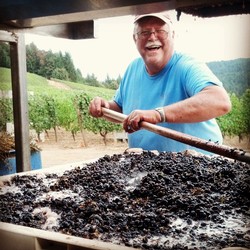
Owner Keith Kramer, filling vats with destemmed Pinot Noir
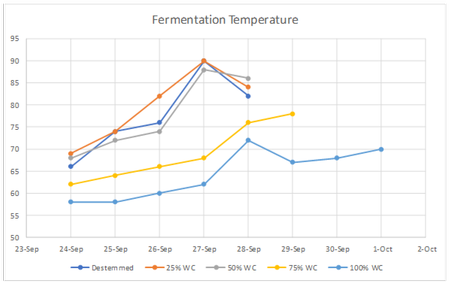
The Results
We observed differences in the fermentation kinetics almost immediately. The vats with higher percentages of the whole cluster fermented at lower temperatures:
This also correlates with the fermentation rate, as indicated by the speed of sugar depletion.
Utilizing whole cluster fermentation as a technique seems to result in slower fermentation with lower temperatures. Cool, right?
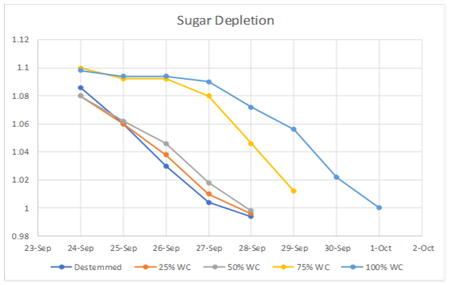
Technical Details
We found that the chemistry of the finished wines was varied, although this could be due to differences in ripeness levels in the field and clonal differences throughout the block. It is important to note that each vintage is unique, so to learn anything meaningful from this exercise, we will need to repeat the experiment over multiple vintages in varying conditions.
The Wines
Our 2014 whole cluster Pinot Noir set includes one bottle of each experimental wine and the 2014 Pinot Noir Yamhill-Carlton, for six bottles. This collection is a lovely gift and fun to share at a dinner party or with friends.
Update: The 2014s are sold out, but the experiment was replicated in 2015. You can find those wines here >>
